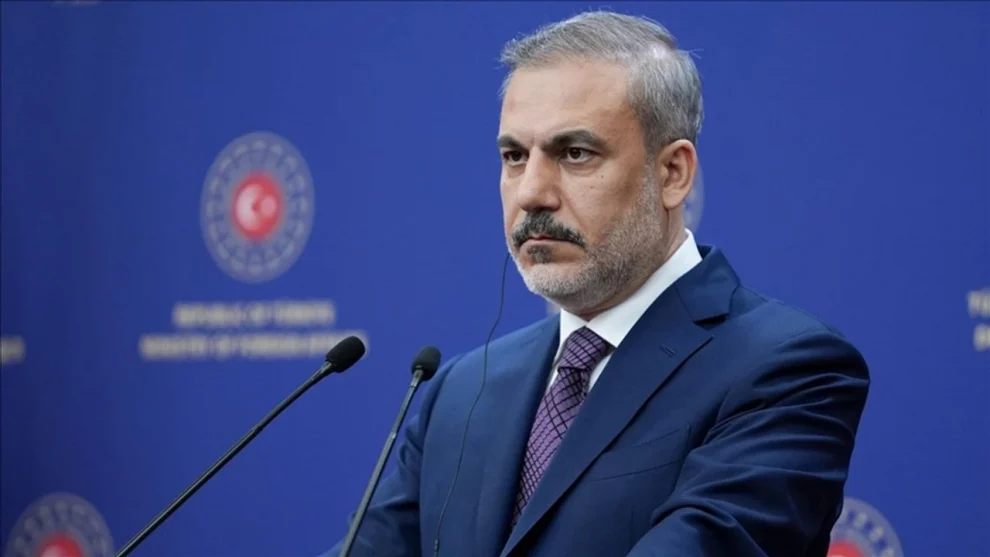Hakan Fidan asserts that Turkey cannot singlehandedly bring peace to Syria, as the Assad regime remains resistant to negotiation, demanding a cautious and sustained strategy from Turkey.
In his interview, Foreign Minister Hakan Fidan clarifies that while Turkey has grown into a significant actor in Syria, it lacks the power to unilaterally end the conflict, which began under Assad’s administration. Misguided notions about Turkey’s involvement overlook the need for a carefully sustained policy focused on supporting the Syrian opposition until Damascus signals readiness for dialogue. Given the Assad regime’s current stance, Turkey must prepare for a gradual, strategic approach, as no quick or simple solutions exist.
Ömer Özkızılcık: What Is Hakan Fidan Trying to Tell Us?
In his recent interview with Hürriyet, Foreign Minister Hakan Fidan plainly stated that the Assad regime is not prepared for any peace or normalization process in Syria. Fidan’s remarks serve as a reminder of how detached and unrealistic some views on Syria truly are. The idea that “making peace with Assad will solve everything” is deeply misleading.
Several factors drive this misguided belief, including a lack of awareness about Syria’s realities, the influence of Russian propaganda, or a tendency to see the world solely from Turkey’s perspective. However, the primary reason, in my view, is a deeply flawed understanding of the Syrian war.
Many in Turkey assume that the country either started the Syrian war or played a significant role in its onset. This perception isn’t entirely unfounded; for years, politicians have framed Turkey’s involvement in the conflict in a way that has fostered this impression.
On one side, in Ahmet Davutoğlu’s narrative, Turkey was seen as an influential player, shaping events and aiming to establish a new regional order, organizing Syria’s opposition, and attempting to bring down Damascus. On the other side, Turkish opposition groups accused the government of initiating the Syrian conflict, suggesting that Turkey pursued an expansionist agenda. With discussions around Neo-Ottomanism, the public increasingly saw Turkey as the main actor in the Syrian war.
But these narratives don’t align with reality. Until the end of 2015, Turkey was, at best, a secondary player in Syria, and at times, a tertiary one. Between 2011 and 2015, Turkey’s role in Syria was hardly more influential than Jordan’s. Turkey’s only distinguishing factors were Davutoğlu’s personal efforts and the presence of the political arm of the Syrian opposition in Istanbul. Turkey was more visible diplomatically, but on the ground, it was not the decisive force.
It was only after 2016 that Turkey truly became a leading actor in Syria. For anyone skeptical of this view, I recommend reviewing international academic studies from 2011 to 2015 on the Syrian conflict to see how seldom Turkey is mentioned.
This misperception has led both the opposition and the government to a flawed assumption: if Turkey changes its stance, it could end the Syrian war just as it supposedly started it. Consequently, some believe that dialogue between Ankara and Damascus could resolve all problems in Syria.
The reality, however, is that Turkey neither initiated the war in Syria nor held a primary role in its early stages, and therefore, cannot end the conflict singlehandedly. The war in Syria was initiated by the Damascus administration. As Foreign Minister Hakan Fidan pointed out, the Assad regime has no intention of negotiating or reconciling with the opposition.
Given this reality, Turkey’s best course of action is to continue supporting and strengthening the Syrian opposition until Damascus adopts a more conciliatory stance. Otherwise, the conflict will persist. This approach requires patience, as there are no quick or easy solutions in Syria. Turkey must adopt a sustainable, long-term policy to navigate this complex situation.






